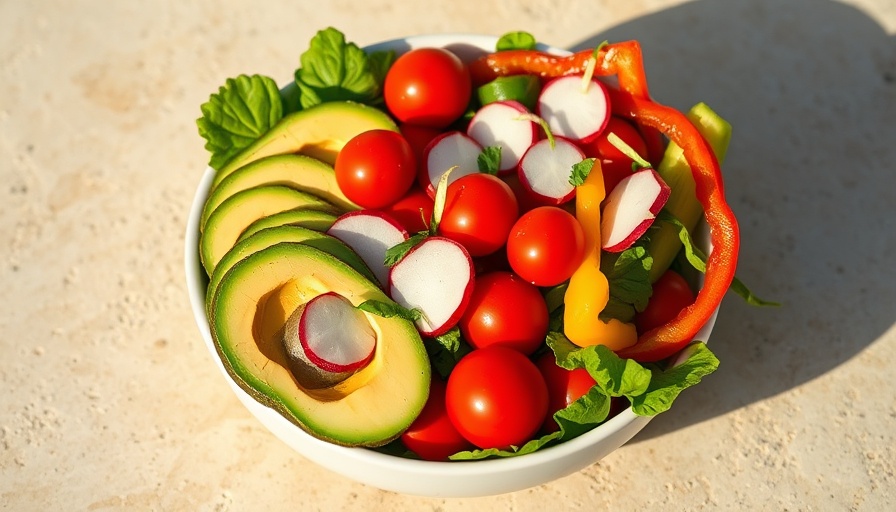
Understanding the Impact of Diet on Metastatic Cancer
Diet plays a crucial role in health, especially for those dealing with serious illnesses like cancer. New research highlights how certain foods, particularly cruciferous vegetables like broccoli, can have significant effects on cancer genes. For women diagnosed with breast cancer, shifting towards a diet rich in these vegetables can potentially downregulate a gene associated with metastatic cancer.
Research Highlights on Dietary Interventions
Several studies, including the Women's Intervention Nutrition Study and the Women's Health Initiative, suggest that lower-fat diets could improve survival rates among women with breast cancer. These studies, however, present mixed results, particularly when adherence to dietary guidelines is taken into account. For instance, participants instructed to reduce fat intake did not achieve significant dietary change, which raises critical questions about the effectiveness of such interventions. The notable result, however, remains that women on a diet lower in fat generally showcase a reduced risk of cancer recurrence, particularly when taking into account studies that successfully adhered to dietary guidelines.
Broccoli's Role in Combatting Cancer
One of the standout findings is the effect of broccoli on cancer cell activity. Broccoli has been shown to decrease the expression of the CD36 receptor—a fat receptor that encourages cancer spread—by up to 35%, according to animal studies. This suggests that increasing broccoli consumption could be a key strategy for combating metastatic cancer. Those undergoing treatment for lung cancer who consume cruciferous vegetables daily have demonstrated higher survival rates, painting a hopeful picture for their fight against the disease.
The Vegetarian Advantage: Cruciferous vs. Animal Products
Interestingly, the survival rates of patients with bladder and ovarian cancers have been linked favorably to higher intakes of cruciferous vegetables. A study indicated that those consuming broccoli and avoiding red meat and dairy products performed significantly better, as indicated by lower mortality rates over several years. Conversely, the consumption of foods like meat and dairy seemed to correlate with increased risks, possibly due to elevated estrogen levels from animal fat or harmful substances utilized in meat production.
Personal Anecdotes: Real-Life Changes
Many cancer survivors have shared their experiences with diet changes post-diagnosis. Shifting to a plant-based diet, particularly emphasizing vegetables like broccoli, has not only contributed to their treatment but has also improved their overall quality of life. Such stories serve as a motivation for those currently facing similar health challenges, showing that dietary adjustments can empower individuals in their battle against cancer.
Understanding the Science: How Food Affects Cancer
As research continues to unfold, it becomes clear that the relationship between diet and cancer is complex yet promising. While it’s imperative to consult healthcare professionals regarding dietary changes, incorporating more plant-based foods, especially cruciferous vegetables known for their cancer-fighting properties, is increasingly being supported by emerging studies. It's an encouraging move towards a healthier lifestyle that aligns with cancer prevention and management strategies.
Empowering Our Choices: Take Action!
For those navigating health challenges or just wanting to enhance their diet, consider the powerful role your food choices can have. Incorporating a variety of colorful, nutrient-rich vegetables into your meals not only supports long-term health benefits but also plays a pivotal role in managing conditions such as metastatic cancer. Let’s embrace these changes together for a brighter, healthier future!
 Add Row
Add Row  Add
Add 




Write A Comment